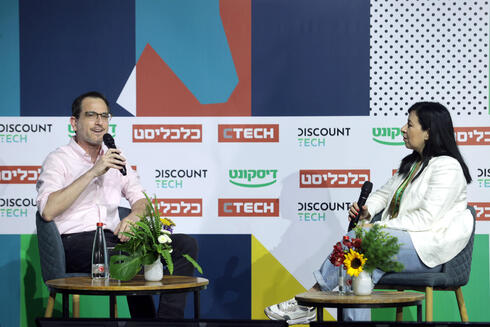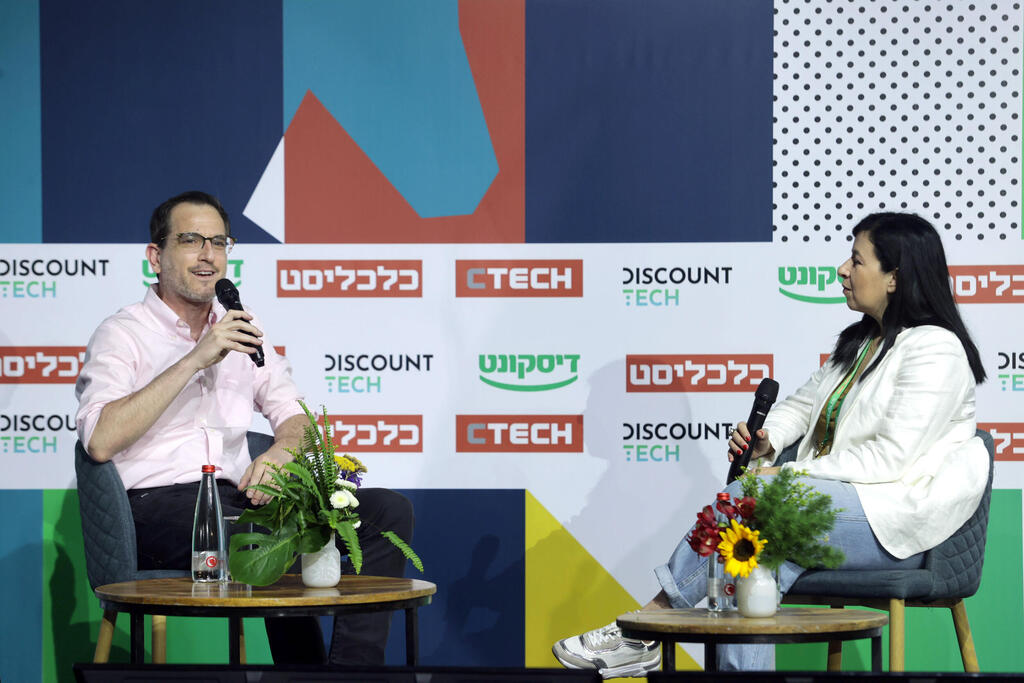
Unicorns Forum
"In the last two years people were measured by their dreams, and the size of the dream was the size of the valuation"
Sisense CEO Amir Orad was speaking at the Unicorns Forum sponsored by Calcalist and Discount Bank. He added that the biggest challenge for Israeli high-tech is the shortage of workers: "My workers in Canada are much cheaper than in Tel Aviv, so it is much easier to recruit them and that is a pity”
Your company was one of the first unicorns in Israel, you recruited at a high valuation, and since then we have not heard from you.
"Now we are a ‘centaur’, a company that reached an annual revenue rate of $100 million. Seven years ago the company's sales were below $10 million, today we are already at $150 million in sales,” said Amir Orad, CEO of Sisense, in a one-on-one interview with Calcalist’s Sophie Shulman at the Unicorns Forum sponsored by Calcalist and Discount Bank.
“We were indeed a unicorn a few years ago and since then we have continued to grow. I do not believe that companies should be counted by how much they have raised but rather by what they do. It’s more relevant. We have two product lines, our main focus is to integrate analytical systems within other systems and it is doing very well because every product in the world wants to be and is going to be data oriented.”
Why haven't you gone public yet?
"It's always on the table. It was irrelevant at the time. In the last two years the whole industry has gone through a lot, from the pandemic to the war in Ukraine. I'm glad we did not do a quick SPAC merger. We receive such proposals all the time. Today I can share that we will end this year in a state of operational profitability, which means that every month more money comes in than what goes out. It is a very healthy place to be and it’s not a trivial matter."
You sit in the U.S. and there is a feeling that what is happening there is different from what is happening here, is that true?
"The global economy, unequivocally, has entered a crisis, and not just high-tech. Money is becoming more expensive and less available and it's happening everywhere. I met 100 CEOs in Europe this week. Everyone is adjusting and assuming that their customers will buy less and be more selective in their purchases and everyone is examining where to become more efficient. This is a completely different situation than two years ago. In the long run this is a healthy wave that strengthens strong companies and cleans up inefficient areas. At the end of the day, Israel’s economy and high-tech will be strengthened by this."
And what about the unicorn industry that your company was one of the first in?
"In the last two years, people have been measured by their dreams, and the size of the dream is the size of the valuation. Today they are measured much more by reality, cash flow and efficiency. Companies in Israel will be divided into two categories: healthy companies that will receive high ratings and less healthy companies that will receive lower ratings. It’s not that bad.”
Do you regret raising so much money and becoming a unicorn, which put a lot of pressure on you?
"I think that every CEO in the world should act like this: when money is cheap, more should be taken from it and when it’s expensive less should be taken. That is the right decision to make. "
Related articles:
As someone who was once a co-founder of a company, Cyota, together with current prime minister Naftali Bennett, where was he better in politics or high-tech?
“I worked with Naftali Bennett for seven years, he is an amazing person, I do not agree with half of his views, and he is still an amazing person. We need good people in politics because we have bigger problems. High-tech is nice but we also have a country here to worry about.”
What is the biggest challenge facing Israeli high-tech today?
"Workers. My workers in Canada are much cheaper than in Tel Aviv. It's much easier to recruit them despite what's happening in the world - and that's a shame. If I could recruit more people here in Israel I would do it. It's hard."















